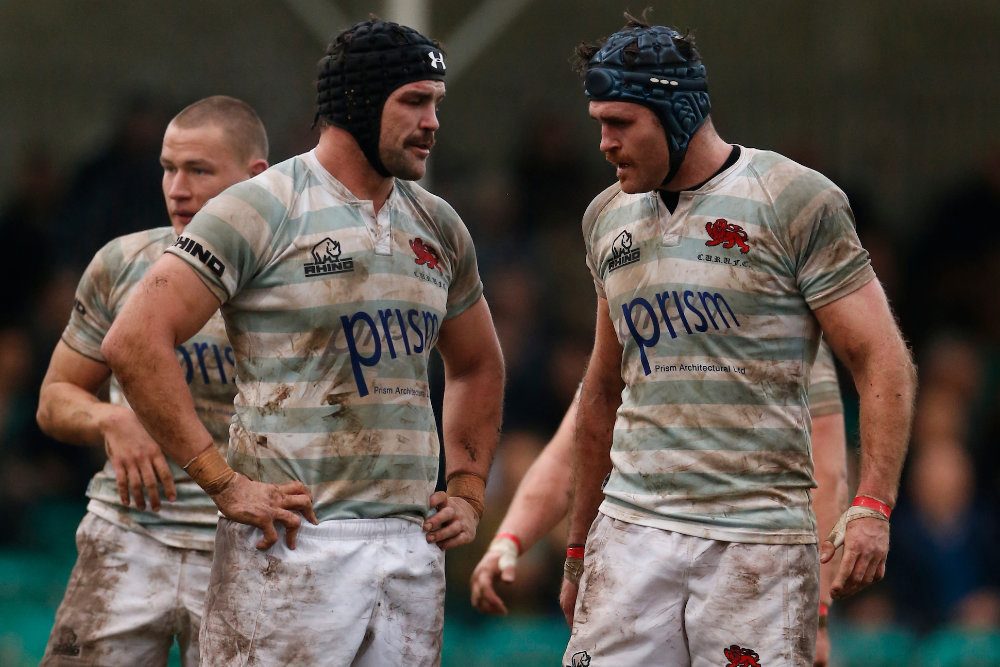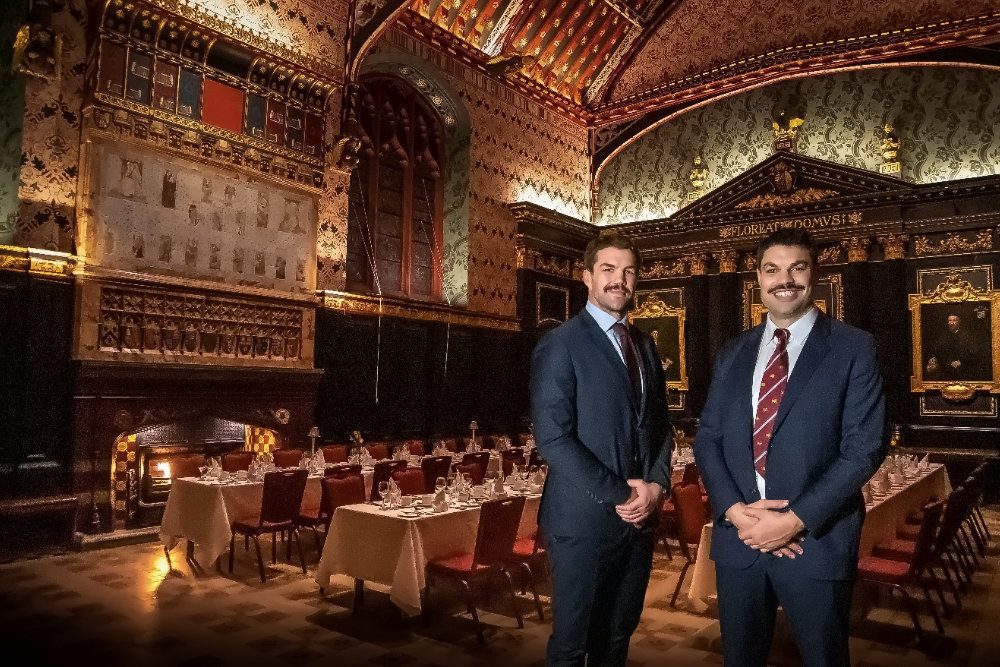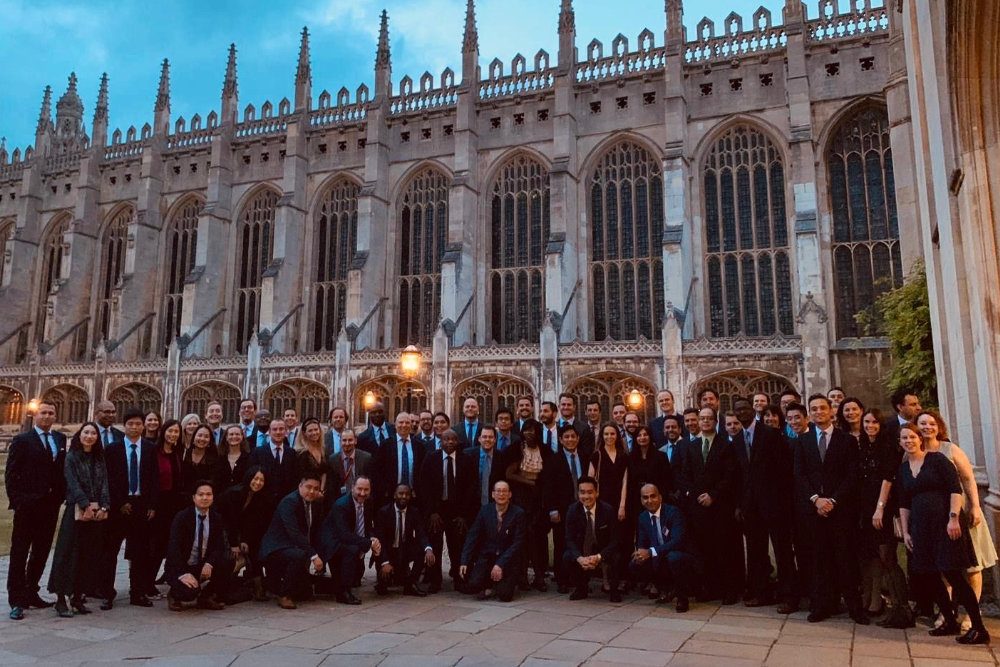When Flip van der Merwe retired from professional rugby, he was keen to transition to a full-time career in data. To build his professional toolkit, leadership skills and network, he chose the Cambridge Executive MBA. This is his story.

As a former professional rugby player, Phillip (Flip) van der Merwe’s early career and route to the programme was different to many Executive MBA participants. Splitting his career between financial advisory roles, rigorous training and celebrated performances on the field, and with a burgeoning career in data-driven insights, Flip joined the programme with the ambition and drive for professional development seen in all our participants.
Flip tells us about his road to the Cambridge Executive MBA in this new blog.
Competitive sports run in my family, so I was always inclined to try out for anything sports orientated. I’m very lucky to have amazing parents that kept me grounded and motivated me to pursue an academic career alongside sports.
The creed of Grey College, the college I attended in the small town of Bloemfontein, in my home country South Africa, reads: ‘NIHIL STABILE QUOD INFIDUM’ (‘Nothing is stable that is not steadfast’), which has been a bit of a mantra throughout my life. Attending an outstanding school like Grey College, with its balance of academia, sports and culture, laid the foundations that got me to where I am today.
After completing my school studies, I stayed in Bloemfontein to pursue a Bachelor’s in Finance at the University of the Free State. I started working as an estate agent to fund my studies and joined the university’s rugby team, the Shimlas. While considering a future in professional rugby, I suffered a horrible knee injury, potentially putting an end to any chances of a career in sports. Frustrated by the injury that stalled progress in my sports career, I took up a role as a Financial Advisor at private wealth management and investment firm Sanlam while I rested and considered my options.
“By the end of the week, I had moved to Pretoria to start training”
Just two months into my role at Sanlam, I received a life-changing call. Out of nowhere, my good friend and sports agent told me one of the best teams in the national rugby league, the Bulls, were interested in my services. I had already met some incredible people at Sanlam, and after discussing the opportunity with my manager, who agreed that I could continue to work for them on an as-needed, temporary basis, my mind was made up. At the age of 24 and without much to lose, I agreed to the terms within a couple of hours and by the end of the week, I had moved to Pretoria to start training.
After some initial rockiness while finding my feet, I began to feel integrated into the new culture and, ultimately, into the world of professional sport. For the first time, I was in a championship-winning team, with tough daily training from eight ‘til five, earning my international colours within six months.

In 2009, I joined the Bulls full-time and we subsequently won the Super Rugby and Currie Cup titles in 2009 and 2010. I made my debut with the Springboks, South Africa’s national rugby team, in 2010, which will be my fondest rugby memory by a country mile. A lot of hard work goes into winning your first selection, and twice as much for your second.
Embracing entrepreneurship and an interest in data
While training and competing, I continued my financial services career as much as possible. Working in an advisor role for a wealth management firm for several years, I eventually co-founded a niche insurance product firm for the South African market, where I served as Director. Juggling business and sports naturally took a lot out of me personally and professionally, so at the age of 30 I sold most of my things and started a new life playing for the ASM rugby team in Clermont Ferrand, France.
Life went from full-on rat race to French café living in a flash and before long I was exploring opportunities to open a coffee shop and street-food restaurant with a rugby teammate and two associates. I’m pleased to say we started operating in June 2017 and have been operating successfully since.
Data became a subject that intrigued me more every day, so two years after arriving in France (and after getting my French speaking skills to a respectable level) I started a Master’s degree in Business Intelligence and Data Analytics at a local business school, from which I graduated in 2019 with a dissertation focusing on fintech as a service and as a possible replacement for traditional banks.
How I chose the Cambridge Executive MBA
After 14 years of service to the sport, I started to develop my ambitions for post-rugby life. When it comes to retirement, rugby chooses you rather than the other way around and like in any sport you reach a stage where it’s time for a new, younger player to rise on to the scene. A natural worry for all sportspeople alike is integrating into “real” life after sport, finding a new passion, channelling the exertion that previously went into a daily battering of your body into a more productive way of living.
As I came to the end of my rugby career, I had the option to choose between the full-time MBA or the Cambridge Executive MBA, both in their own rights amazing programmes. I was fortunate to know some Cambridge Judge Business School alumni who arranged for me to visit the School and meet with faculty and staff involved in both programmes. To put the severity of the decision into context, the first time I visited Cambridge Judge Business School was in June 2015 and I submitted my application for the EMBA two hours shy of the 2019 final application deadline!
My experiences and desire to collaborate with a more professionally experienced cohort finally swung my decision in favour of the EMBA. On retirement from rugby, I was offered a job at technology consulting firm, CGI. Not wanting to give up such an incredible opportunity, but aware of my need to bridge knowledge gaps between my backgrounds in finance and data analytics, the structure of the Executive MBA was the other deciding factor for me.
Every monthly session in Cambridge is so enriching and the value you add and implement in the workplace immediately is priceless. The team projects suit me perfectly, working on complicated models and seeing the incredible minds of the people around you in action is inspiring. The EMBA is the perfect fit to assist me in my transition from rugby playing professional to a corporate professional.

A major attraction of Cambridge for me was the fact that they value sport and its ideals, and many great sportsmen and women have had to brave the multitudes of staircases in Cambridge Judge Business School with sore legs! For obvious reasons I signed myself up with the University’s rugby team, CURUFC, and was lucky to participate in the 138th annual Varsity Match against the “other place” (Oxford University). A truly enjoyable experience, that fits the one-of-a-kind memories that one needs for the golden years. GDBO!
[Editor’s note: Flip is too modest here to say Cambridge delivered a brilliant victory in the 138th Varsity Match]
Ambitions in the sustainable energy sector
While I am enjoying the consulting world a lot now and learning a lot about the industry in Europe and France in particular, I will always stay South African at heart. Though South Africa is such a beautiful, diverse and resourceful country, I believe there is a lot of work to be done in terms of securing equal distribution of rights and access to basic needs like clean water, sanitation and electricity. The country’s national electricity system is under immense strain and considering this I have already started working with some of my fellow cohort towards a sustainable energy solution for South Africa.

I am incredibly fortunate to be part of such a strong cohort and the support I get from my employer to pursue my goals has set me on the perfect path to make a seamless career transition.


Leave a Reply